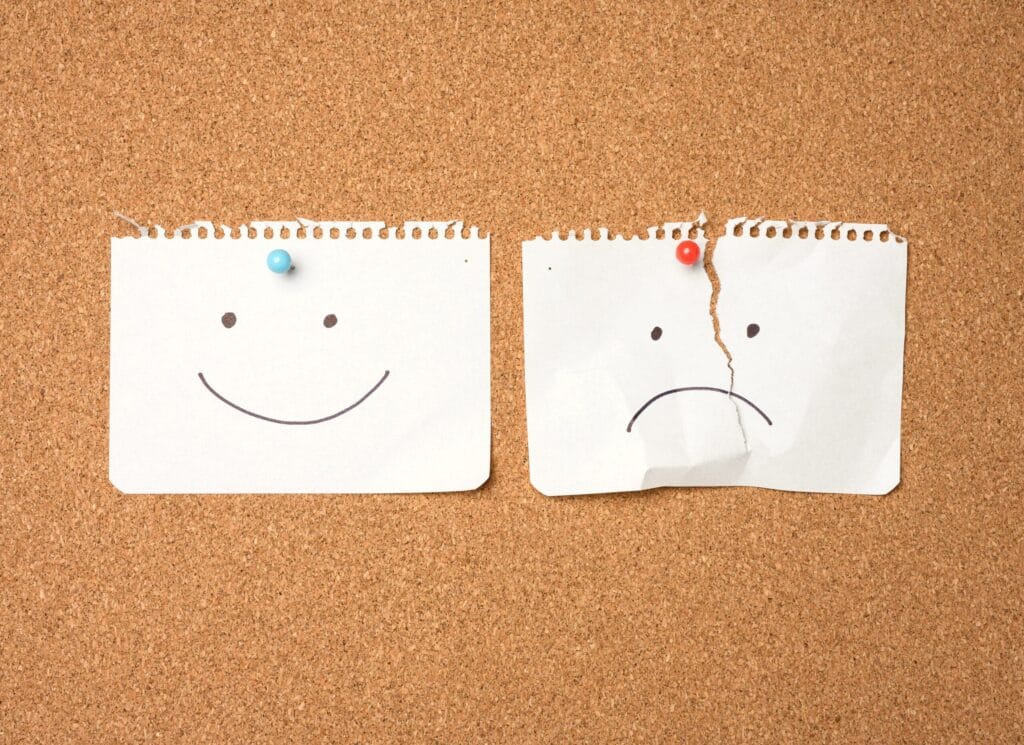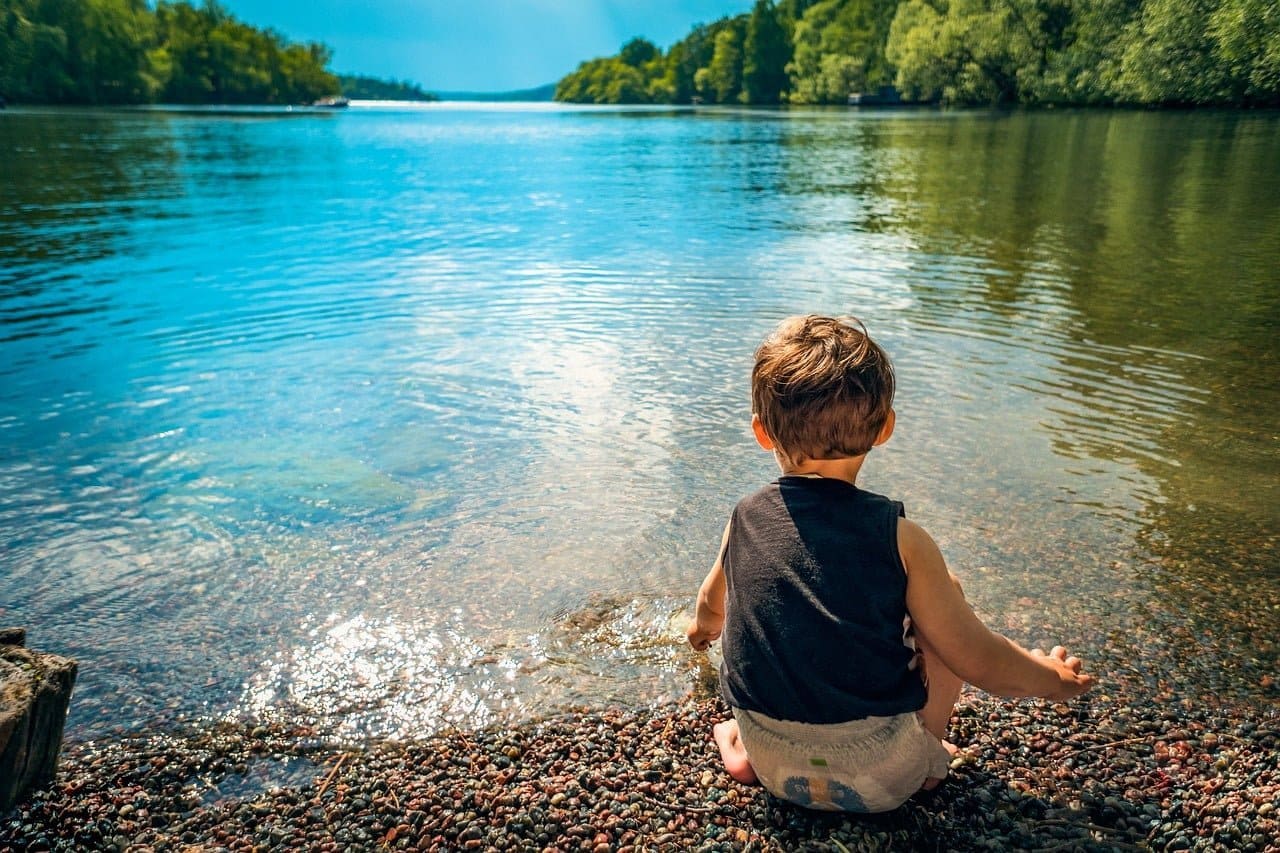In the books Glow Kids and Digital Madness, Dr. Nicholas Kardaras shines the light on the ways our internet-connected device usage is having disastrous consequences for our personal and societal well-being. Glow Kids is all about all of the numerous ways kids are affected by living in a world that shuns outdoor free play and throws new devices, apps, and games into their faces every day. Digital Madness focuses primarily on social media – how it affects our brains and how Big Tech is driving this mental health decline for the purpose of profit.
Sometimes when you read things like this, it’s easy to feel detached from it. Reading stories and statistics about addiction, depression, video game-induced rage episodes, and suicide can only go so far if you and your family has never experienced these things yourselves.
But – if you are willing – I’d like to share one more story with you. I think you’ll find some important implications from it.
It’s a story of two high schoolers
One was a popular kid who everyone knew. He was the Student Body Vice President, Honors Society President, a multisport athlete, had a great church community, and was a teacher’s favorite with a 4.0+ GPA. He loved to laugh and make others laugh. He was kind to his parents, and they often bragged about their “perfect son”.
Know anyone like that (maybe your own kids!)? A model student/athlete/child that parents love to post about online.
The other high schooler felt alone and isolated. He’d been addicted to pornography since age 12 but didn’t feel like he could tell anyone about his struggles. He tried every day to stop, but always fell back into it. Whenever he had free time, he would sit in his room and play video games alone until he had to go to bed. He had chronic pain and was often depressed and joyless, living in a constant cycle of shame and self-hatred for never being good enough to meet his own standards. He was on social media, but all it did was waste his time with infinite scrolling and lead him to hate himself more as he compared himself to all of his other friends in their perfectly curated pictures and posts.
Polar opposites, right? Well, if you haven’t already guessed where this is going:
The “kids” are actually just a single kid: me.

I lived every day feeling like a fraud. Like nobody truly knew me, and that they wouldn’t love me if they did. I tried to “earn” love and respect through hard work in school and life, but deep down I know that it was all a lie and would never make me truly loved. I tried everything I could to fight my addictions, but couldn’t do it alone and wouldn’t bring anyone else into the battle with me.
The only way I got to where I am today was by the grace of God in bringing it to the light after years of failing to overcome it. I confessed all of my darkest sins and shame to my spouse and my closest friends, and was met with nothing but grace, forgiveness, and love. I’m doing better now, but the physical and mental effects of that time still affect my life every single day.
The most surprising and saddening thing I have learned since then is that I was not alone. In fact, in some ways, I was in the majority. Statistics show that at least 93% of boys and 62% of girls are exposed to pornography before age 18, and those numbers rise every single year. 70% of those exposed are exposed unintentionally (like I was), meaning that they did not intentionally seek out the content – someone forcefully showed it to them, or they accidentally stumbled upon it online.
And gaming? Well that’s grown exponentially since I was a child, so this pattern is way more common now. Around 6 in 10 teenage boys play video games daily. As much as it’s claimed to be “social”, the vast majority of gaming is done alone. Hours upon hours, days upon days, spent all alone in front of a screen.
These were miserable experiences for me that I would never wish on anyone. Yet a significant amount of kids are under these glowing curses still today, and society as a whole has done almost nothing to help them. In fact, the vast majority of Big Tech companies and gaming companies are preying on our kids to get them to buy more and consume more with no regard to their well-being.
What does this mean for me?
If you’re a parent, guardian, mentor, teacher, etc. of a kid under 18, I promise this has relevance for you, whether you know it or not. How so? That’ll depend on your specific situation, but here are at least a few tips that should have relevance to you.
Every Child Will Have To Understand These Things
Don’t count on your child beating the odds and not being exposed to pornography or becoming an obsessed gamer. “They’re good kids, they wouldn’t do these things”. I was a “good kid” too, and so were many others that I’ve met who struggled with these things. That’s not what this is about. It’s about overstimulating technology our brains are not built to handle causing changes in neural pathways that kids have no shot at fending off. Any child under the right circumstances could struggle with these things.
But even if they do beat the odds, They will still be surrounded by people and businesses constantly trying to lure them into that world, so they will have to develop mental fortitude and personal resolutions about how and why they want to use technology in safe and healthy ways. Technology is not going away and will only becoming more prevalent each day.
You have power to make a difference for children in this area, as long as you talk about it with them. The loudest voice often wins out, and big tech is constantly screaming to your kids through advertisements and new products. Their friends and others around them can also influence them in a negative way.
So talk with your kids about these things! Listen to them and understand their perspectives. Don’t shy away from the reality of things, but give them hope. Model this in your own life, and give them opportunities to have great experiences in the real world so that they don’t think they need to rely on technology for a sense of joy or pleasure or fulfillment.
Many Children Will Need Help Overcoming Them
Statistics of pornography exposure, and daily gaming usage don’t tell the whole story. There are groups in each of those areas of kids who may not be significantly negatively affected by these experiences. Pornography exposure, while never a good thing, is not what kills kids. The real killer is unmanaged repeated exposure and usage.
I know many friends who were exposed at a young age in a similar manner as I was, but who had no long-term effects because of the ways their parents lovingly cared for them and walked through their experiences with them. I also know many kids who regularly played video games, but did so in a more social manner and for shorter periods of time, and they too, were far less affected than I was. I say it often, but it always holds true: every child and every circumstance is different and has to be addressed in a unique way.
So if you’re panicked because your child was exposed to pornography, or has begun to use video games in an unhealthy way, be encouraged! Kids brains are extremely malleable and adaptable, which is scary because of the way internet content can mold their brains and harm them, but also amazing in the ways that they can overcome those challenges and changes.

For those kids who, like me, are not so fortunate in escaping some form of addiction, be extra attentive and caring. The worst tactic you can use is more shame. They’ll have plenty of that from watching pornography, and often will feel frustrated and down and depressed in life after excessive gaming sessions.
Grace and love are what they need; or, like the Bible says, “speaking the truth in love” (Ephesians 4:15, ESV). Be honest with them about the harm that these things might be doing to them, but emphasize most strongly how deeply loved and cared for and forgiven they are if they’ve done something wrong. Make it clear that you’re on their side and that you want to support them in this.
Every child and circumstances, unique, so there are a variety of different measures that might be taken to help kids through different Internet related addictions and struggles, including therapy, tech fasts, and social and home life improvements. Check out CovenantEyes as a good start, and feel free to reach out to me to discuss your specific circumstance further.
But no matter which route you take, it should have significant measures of love and compassion involved. As hard as it is to get children to see that you’re working for them and they’re good, and as much as they may complain about things, they will see your love, and it will have a profound effect on them, whether you see it in the moment or not.
Kids Need Real-Life Experiences
As is heavily emphasized by Dr. Kardaras (and by Jonathan Haidt in The Anxious Generation book, the loss of free play for children over the past few decades is a significant contributing factor to these various Internet related, addictions. The panic over dangers of children playing without adult supervision due to fear of kidnapping or drug usage (or whatever the “fear of the year” was) pushed children inside more and more, to the point where now, over 60% of teens say that they have no face-to-face social interaction outside of school.
That is crazy to think about! Kids always find ways to entertain themselves; that’s how they’re built! Unfortunately, households today are filled with technology that provides limitless entertainment at the tap of a button. Without any real world or alternatives, kids are turning to the only things they can turn to – screens.
Any ways that you’re able to provide kids with more real world experiences may help you more than any technological control ever could. Find clubs in organizations for your kids to join. Let them try new sports or new instruments. Host more gatherings at your homes for their friends and their friends families. Join nationwide organizations like Wait Until 8th to build a community around you like-minded parents who also are facing the uphill battle of trying to keep their kids away from excessive and dangerous use of technology.
Laws Need To Change
Our government is failing our children. There’s no question about it. It’s been proven over and over for years and years how screens damage kids minds. How social media has led to drastic increases in mental health disorders and self harm. How excessive gaming has contributed to violent impulses in boys and men.
Changes need to be made. Social media should not be allowed until age 16 at a minimum. App and game developers should face higher consequences for manipulative and harmful designs and practices.
To help you apart of making a change in the legal side, check out the movements at Anxious Generation, NCOSE, and Protect Young Eyes.
For years, I felt so alone. I thought I was the only one experiencing what I was experiencing. Now, I’m writing to tell you to do everything in your power to not let any other kid feel what I felt. To do everything in your power for those kids whose lives you can impact in your family and in your community.
If you can make a difference in one small way for one single child, then I believe you’ve done something incredible in my eyes and in the eyes of God. Thanks for reading.
Casey


